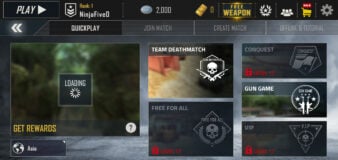


Larry brought them to his home where they performed for Lawrence who was in bed ill. Impressed, he booked them on the spot for a show appearance where they continued on until 1968. The girls came from a Los Angeles family of 11 siblings.įirst a quartet, Peggy, Dianne, Janet and Kathy – they became a trio for four years when Dianne departed after getting married. The group began recording on Coral Records in 1956 and made a dent on the charts in 1956 when their version of “Tonight You Belong to Me” competed with darling little Patience and Prudence who’s version reached number 4 – with the Lennon’s peaking at 15. The Lennon Sisters would only chart one additional time with 1961’s “Sad Movies (Always Make Me Cry)” reaching number 53. Surrounding the release of “Calcutta” were several departure efforts from Welk’s trademark “champagne” music with “Last Date”, “Theme from My Three Sons”, “Riders in the Sky” and even a version of “Runaway”! The song was the first hit record for Sue Thompson who’s version came out a few weeks earlier reaching number 5. Lawrence Welk was a very popular band leader, especially via his national weekly television show and his power lie with long play albums, having placed 42 of them on the charts and landing in the top 10 twenty times. And his “Calcutta” titled long play was a monster success remaining at the number one spot for 11 weeks.Īs a Welk post note – I enjoyed his band’s theme song “Champagne Time” which was released in the fall of 1956 as a single “B”side (“A”side “Around the World”) neither side charting.

Welk was born in March of 1903 in Strasburg, North Dakota the son of Ukraine immigrants. He started off with bands “The Hotsy Totsy Boys” and “The Honolulu Fruit Gum Orchestra” (wow!!). To fix this error, .compiler.batch library should be added to the application classpath.His primary band picked up the “champagne” moniker during a stand in Pennsylvania with a member of the audience alluding the “bubbling” reference. Would fail now with: NoClassDefFoundError: .īecause .dom.ASTParser uses internally ECJ APIs and they are now.
COMPILERBAU NEON DRIVE 84 CODE
So for example code that had _XYZ.jar on classpath and tried to call this outside Eclipse: ASTParser parser = ASTParser.newParser(AST.getJLSLatest()) So if some target definition, launch configuration or build file referenced the two fragments, these references can and should be removed now.Īnother issue might affect standalone (non OSGI based) applications that were using as a "simple" Java library (which jdt.core never was). Known problems with the split of the ECJ from core bundleĪs part of the .compiler.batch code separation from, the two fragments of - .apt and .tool were merged into .compiler.batch. However, no change is without side effects. The .compiler.batch bundle itself doesn't have any dependencies and so can be used in Eclipse products that do not use workspace concepts. The .compiler.batch is now included in SDK as a regular Eclipse bundle and can be compiled / deployed / used separately from bundle.Īll of ECJ packages are re-exported by, therefore from OSGI point of view, all 3rd party code that used some compiler related API from doesn't require any change. To resolve these (and other) problems, the ECJ code is moved from to dedicated .compiler.batch project and will be deployed as a separated bundle. Another interesting side effect of hosting ECJ code next to IDE code inside same bundle was that developers couldn't see if the ECJ code per mistake got some dependency to the IDE.

COMPILERBAU NEON DRIVE 84 FULL


 0 kommentar(er)
0 kommentar(er)
